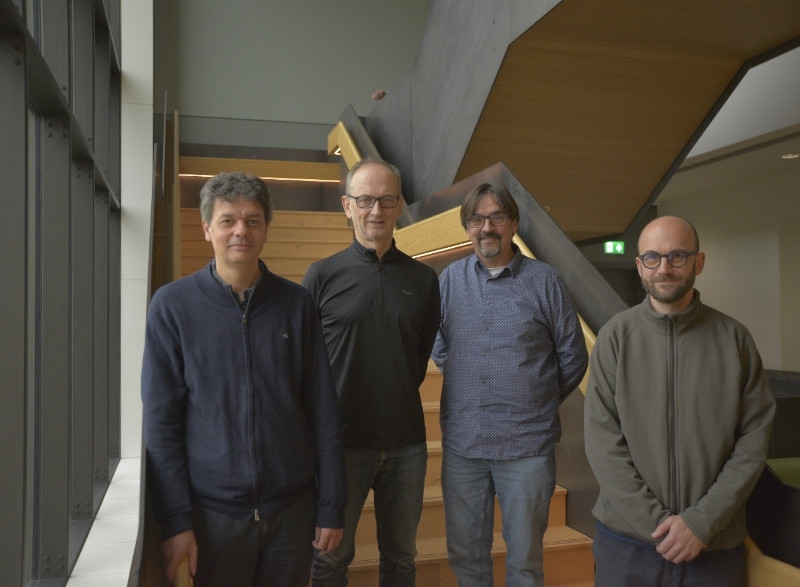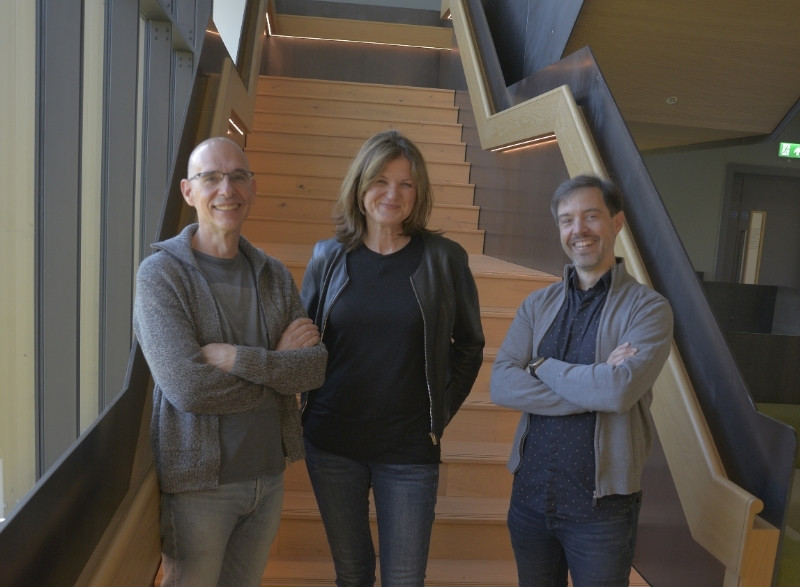The transdisciplinary teams will take a 360 view of major health concerns associated with ageing
By Tom Wells
November 10, 2025
Time to read: 6 minutes
Today the MRC Laboratory of Medical Sciences (LMS) proudly launches the first two projects in its innovative Team Science initiative, marking a bold step forward in a more interdisciplinary and collaborative model of research. The initiative will be driven by major challenges to human health; big questions that can be answered with the right team of people and the right approach.
A Team Science project is fundamentally different in its ethos and operational model. Team Science is designed to foster true collaboration across multiple disciplines and areas of expertise; intellectual, technical, economic and social. As they build, the teams will interface with academia, industry, government and publics to create projects that none of these could achieve alone. It’s about collective ambition, shared visions, a wide platform of infrastructure and expertise and interdisciplinary innovation. Although this new approach places collaboration and real-world impact at its core, integrating insights from across the LMS’ existing expertise and diverse perspectives, it is also focused on outcomes and answering important scientific questions that can translate into improvements in health.
Planning for the Team Science programme at the LMS began more than two years ago with extensive all-staff workshops interrogating the intersection of LMS expertise and technical capabilities with ambitious “moonshot” ideation about possible projects, giving rise to a database of some 500+ individual questions which were curated, categorised and prioritised. Subsequent workshops focused on looking at questions specifically through the lens of LMS expert teams to focus on the big questions that the LMS could realistically address within a “challenge-based research” framework.
Following a rigorous and competitive selection process, the LMS is delighted to announce the recipients of funding for the first two Team Science projects. The teams will focus on major topics in the overlapping areas of ageing and sex differences, bringing their transdisciplinary expertise together to provide significant leaps forward in our understanding of the fundamental mechanisms underlying ageing-associated health decline.

Inflammation is a known driver of many diseases associated with ageing, one specific cell-signalling pathway known to be strongly associated with this – known as “inflammaging” – is of particular interest. Nucleic acid sensing pathways (NASPs) evolved to detect disease-causing microbes, activating the immune response in response to DNA or RNA from bacteria or viruses. However, the increase in self-derived nucleic acids that occurs as an intrinsic part of the ageing process also triggers the NASP immune response. It’s thought that this results in chronic low-level inflammation, which is characteristic of age-related health deterioration, creating a sustained “inflammaging” feedback loop. This Team Science project will cut across the research expertise of more than 14 different groups at the LMS and Imperial College London, bringing together expertise in molecular biology, ageing and immunology to explore how NASPs contribute to the decline in cellular function over time.
This team will focus particularly on the interplay between inflammation, genomic stress and biological ageing, examining how these processes vary between sexes and whether targeting specific pathways could slow age-related decline. By studying these mechanisms through a transdisciplinary lens, the team aims to generate insights that could inform both basic science and future therapeutic strategies.

Infertility affects around one in six people globally and the number is growing, as many populations, including the UK’s, shift to older parenthood, with a 14.2% increase in births to fathers over 60 between 2023 and 2024.
There are striking sex differences in both male and female fertility trajectories and the onset of reproductive decline. While female fertility drops sharply with age due to egg depletion with corresponding increases in chromosomal abnormalities, male fertility declines more gradually but is often accompanied by increased rates of mutations in sperm.
Despite its prevalence and significant emotional, societal and economic impact, the biological mechanisms underlying infertility and reproductive ageing remain poorly understood. The sex differences are rooted in fundamental biological processes, including the initial formation and subsequent maturation of egg and sperm cells, however the influence of intrinsic and environmental factors such as ageing, metabolism, and immune signalling on these processes are still unknown.
This team will exploit recent advances in genomics, imaging and model systems to dissect the underlying mechanisms of infertility with unprecedented resolution. Studies in mice, worms and humans have begun to reveal sex-specific features of the chromosome structure governing meiosis (the form of cell division that results in egg and sperm cells), gene regulation and DNA repair. At the same time, emerging evidence suggests that the cellular environment of the ovaries and testes, metabolic factors and immune system interactions also play critical roles in shaping egg and sperm development, thus affecting their reproductive potential. In addition to exploring the effect of intrinsic factors on sperm and egg formation and development, the team will examine how lifestyle and individual physiology affect the very early development of egg and sperm cells, ultimately uncovering key drivers of reproductive decline and identifying new opportunities for intervention. This project will explore implications for diagnostics, therapeutics and healthy ageing with regard to fertility, resulting in new strategies to enhance reproductive health.
These first two Team Science projects mark the beginning of an exciting new way of conceiving and conducting research and the LMS will serve as an incubator for these new ways of scientific working. By embracing a transdisciplinary Team Science approach, the Institute is laying the groundwork for a more impactful approach to discovery.
As the teams evolve, they will serve as dynamic hubs – drawing in new collaborators, disciplines and perspectives to tackle complex biomedical problems at scale.
“This initiative reflects the LMS’ commitment to fostering innovation that leverages cutting edge mechanistic discovery science to answer questions with major impact on human health.” says Wiebke Arlt, Director of the LMS, “Taking a transdisciplinary approach enables us to integrate the perspectives of cutting-edge scientists from multiple disciplines, but also take into account the perspectives of the public, entrepreneurs and business from the outset.”